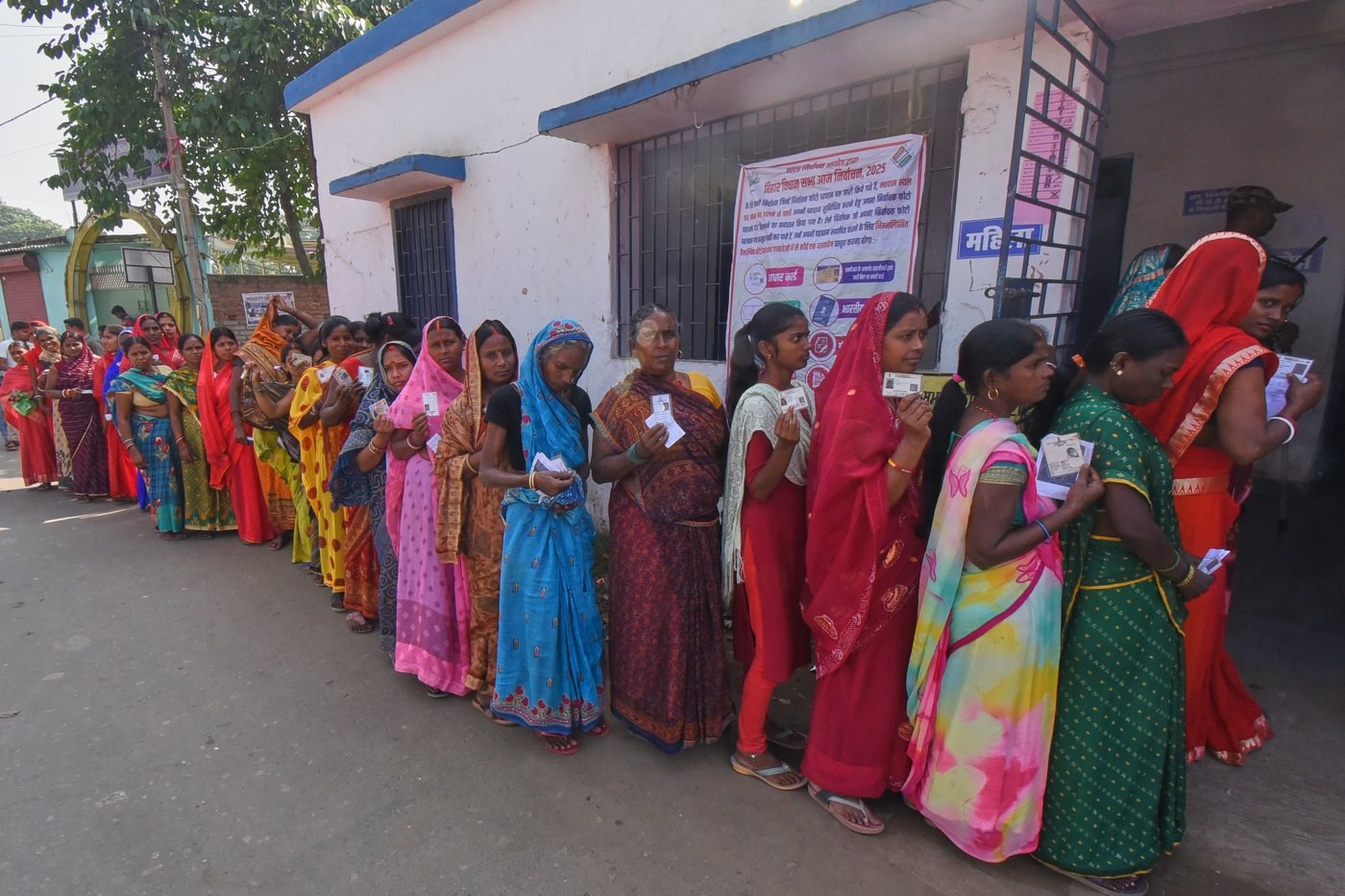
Women stand in a queue to cast their votes for Bihar state election at a polling booth in Patna, India, Thursday, Nov. 6, 2025. (AP Photo)
November 05, 2025 - 4:23 PM
PATNA, India (AP) — India is holding a key local election in the eastern state of Bihar on Thursday to choose a new government — a vote seen as a crucial test of Prime Minister Narendra Modi ’s popularity and his alliance’s hold over one of the country’s politically influential states.
Millions of people lined up outside polling stations across Bihar in the two-phased vote for its 243-seat legislature. The election comes amid widespread public concern over unemployment, law and order, and alleged irregularities in revision of electoral rolls.
The results, expected Nov. 14, will gauge whether Modi’s Bharatiya Janata Party-led National Democratic Alliance, or NDA, can sustain its dominance or face growing discontent over economic and governance issues.
Why Bihar matters for Modi
Bihar, long seen as India’s political bellwether, has become a crucial test for Modi as he seeks to build momentum ahead of national elections in 2029 and key state polls in Uttar Pradesh, West Bengal and Assam over the next two years.
Bihar sends 40 lawmakers to the parliament’s lower house — a win in the state could strengthen Modi’s coalition while a setback may boost the opposition.
“Bihar’s election is not just about alliances but arithmetic,” said New Delhi-based analyst Sidharth Mishra. “If the NDA led by Modi falters, it could unsettle his coalition at the center.”
Modi’s party failed to win a majority in last year’s federal vote and relied on allies Janata Dal (United) and Lok Janshakti Party (Ramvilas) to form the government. These alliances are Modi’s key partners in Bihar too.
Challenges from the opposition
The BJP leads Bihar’s ruling alliance, with Chief Minister Nitish Kumar of the Janata Dal (United) at the helm. Kumar, 74, has governed for nearly two decades, and is credited with improving the state’s infrastructure and ending its law and order problems.
Once an opponent of Modi, Kumar later rejoined the BJP-led National Democratic Alliance.
Analysts say a loss in Bihar could split his party and threaten Modi’s federal coalition, which relies on 12 of Kumar’s lawmakers, as defected leaders can join the opposition.
“This election could affect not just Bihar’s leadership but the stability of Modi’s government,” said Ravi Ranjan, a political science professor in New Delhi.
The NDA faces the opposition Rashtriya Janata Dal, allied with Congress. A new group, Jan Suraaj, floated by Modi’s former poll manager Prashant Kishor, is also in the fray.
Rahul Gandhi, leader of the Congress Party, has denounced the state’s recent revision of electoral rolls in Bihar by the Election Commission of India, calling it politically motivated.
Nearly 10% of the state’s 74 million voters were removed from the lists since June, with opposition parties saying this disenfranchised poor and minority voters. The poll commission insists the revision was needed in the wake of large-scale migration of laborers, young citizens becoming eligible to vote and non-reporting of deaths in the state.
Bihar has a saddled economy
An agrarian state and one of India's poorest, Bihar is home to around 130 million people. To woo voters, the BJP alliance and its main opposition party have both promised to create millions of government jobs though economists doubt that's possible, given the state’s fragile economy.
In September, Modi made a move to appeal to women voters, doling out cash transfers of 10,000 Indian rupees ($113) each to 7.5 million women as part of an employment program. Women form an important voting bloc as men largely migrate to metropolitan areas and bigger cities for work.
Pushpendra Kumar, a socio-economist and former professor at Tata Institute of Social Sciences in Mumbai, said the state election in Bihar underscores its paradox — the majority of the people continue to live in poverty while the ruling alliance claims to have put the state on a path to development.
“The state government has initiated welfare measures but has rarely attempted to address underlying causes of poverty such as landlessness, low wages and limited employment opportunities,” he said.
___
Roy reported from New Delhi.
News from © The Associated Press, 2025